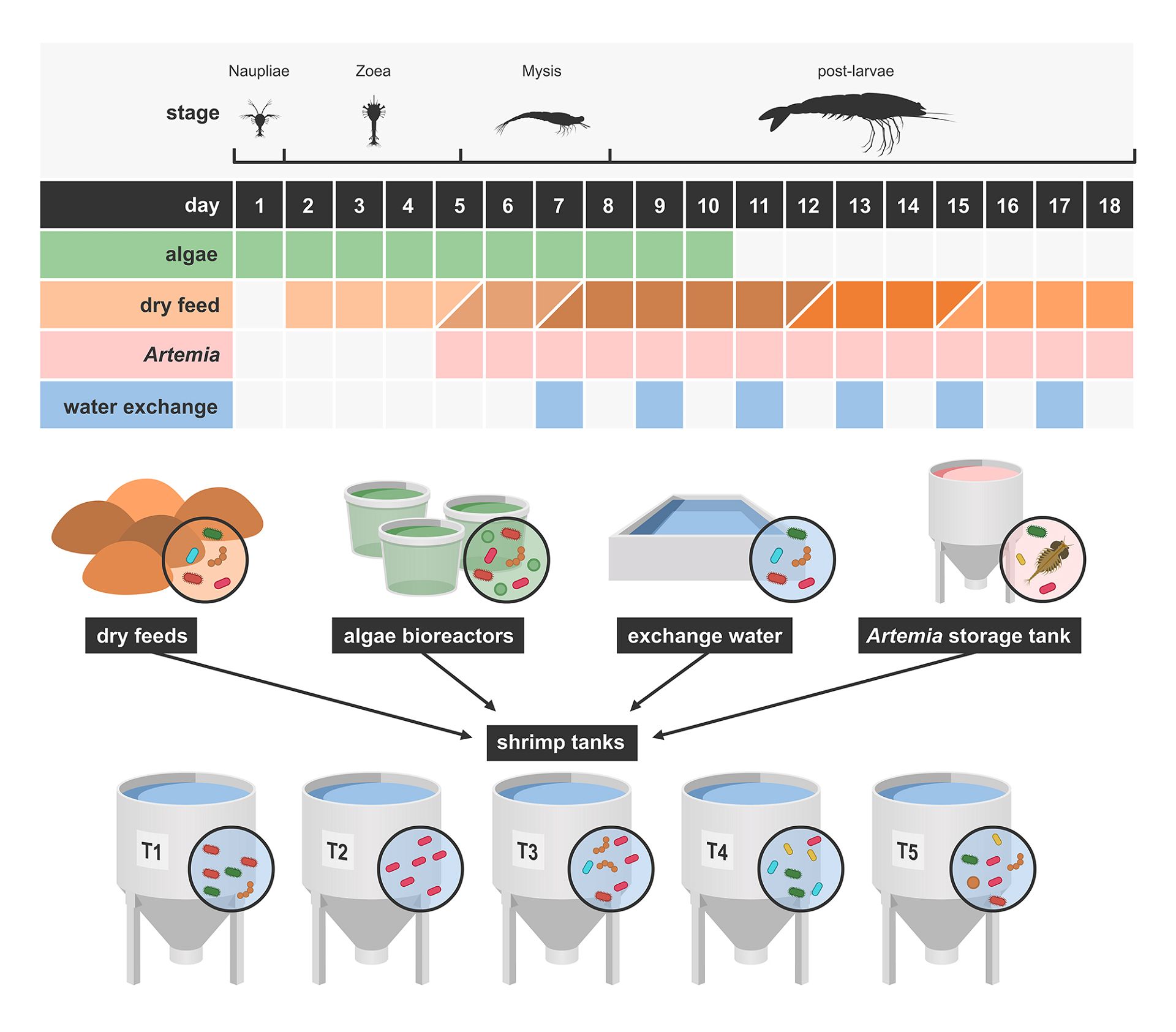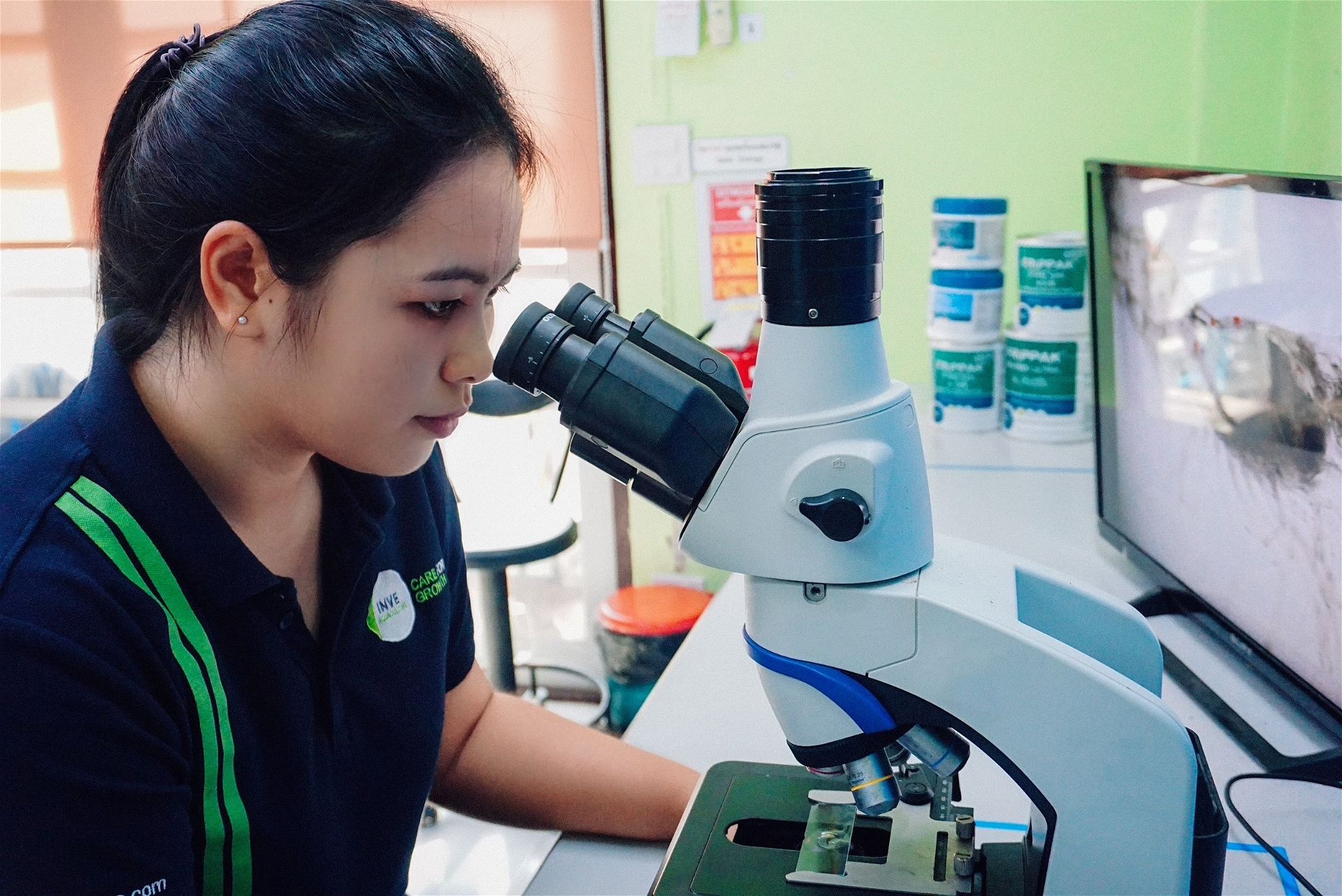New research in microbial management reveals potential for improvements in farming efficiency
The development of effective microbial management strategies to reduce disease outbreaks in aquaculture is often hindered by limited knowledge of the microbiology in fish and shrimp farms.
New research published by the Center for Microbial Ecology and Technology (CMET, Ghent University) in collaboration with INVE Aquaculture, the Advanced Nutrition business area of Benchmark (BAN) reveals opportunities to drive farming efficiencies through a comprehensive understanding of the microbiome.
“In aquaculture, the presence of bacteria in farming water influences nutrient cycles, metabolic waste degradation, digestion and health of the animals so managing these microbes is an important tool in steering the overall health of the system”
Says Peter De Schryver, Group Leader Health and Environment at INVE (BAN) and co-author of the publication.
A good performing microbial community in the water is vital, as well as the need to avoid that the microbiome becomes suddenly disrupted (a process called “dysbiosis”). By accurately assessing the bacteria it allows companies to begin to track changes and link this with the health status of their stock. In the future this may also allow producers to predict when their animals’ health may be compromised.
 |  |
First of its kind technology
The researchers focused on the rearing water of white leg shrimp (L. vannamei) cultivation. They assessed microbiome composition and dynamics using a combination of established molecular and novel flow cytometry analysis methods, which allows to measure and quantify all bacteria, but also algae and sometimes even viruses, making this differential to conventional diagnostics which focuses on a single organism at a single moment.
Lead author, Jasmine Heyse of Ghent University;
“We tracked contributions of microbes from external sources, including live or dry feed products, to the rearing water. It is the first time that these contributions have ever been quantified”.
Improving efficiency and efficacy of products
Ruben Props, also of Ghent University commented, “The application of this new flow cytometry methodology means that we can accurately assess changes in microbiomes that are linked to the use of products. I believe this opens up new opportunities for product suppliers such as INVE (Benchmark Advanced Nutrition) but also fish and shrimp producers to know that the products they are using are having the desired effect.”
“Via CMET’s academic research but also our upcoming UGent spin-off company KYTOS we are continuing to create larger datasets which will allow us to pin point the microbiological markers that determine the survival and health of animals. This will be a step change in farm management”, Ruben adds.
Peter concludes, “the concept behind the paper* sets out the way forward. It was a great partnership between industry and academics and shows with the correct tools and knowledge we can make great steps forward in improving the health and efficiency of aquaculture systems.”
*Full publication
Others:
Microbiology Research in Portuguese
Microbiology Research – IPAC – Spanish
Microbiology Research – Mis Peces – Spanish